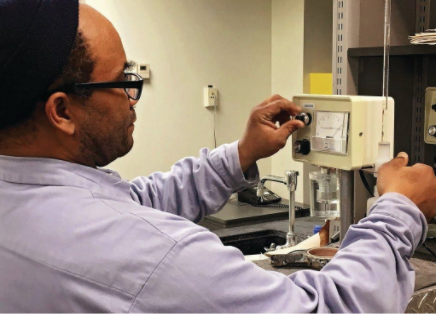
 Back to Career Explorer
Back to Career Explorer
Water Treatment Technician
Before you take a sip of water from the faucet, a water treatment technician or operator has ensured that it is safe for you to drink. Freshwater is pumped from wells, rivers, streams, or reservoirs to water treatment plants, where it is treated and distributed to customers. Water treatment technicians and system operators run the equipment, control the processes, and monitor the plants that treat water to make it safe to drink.

